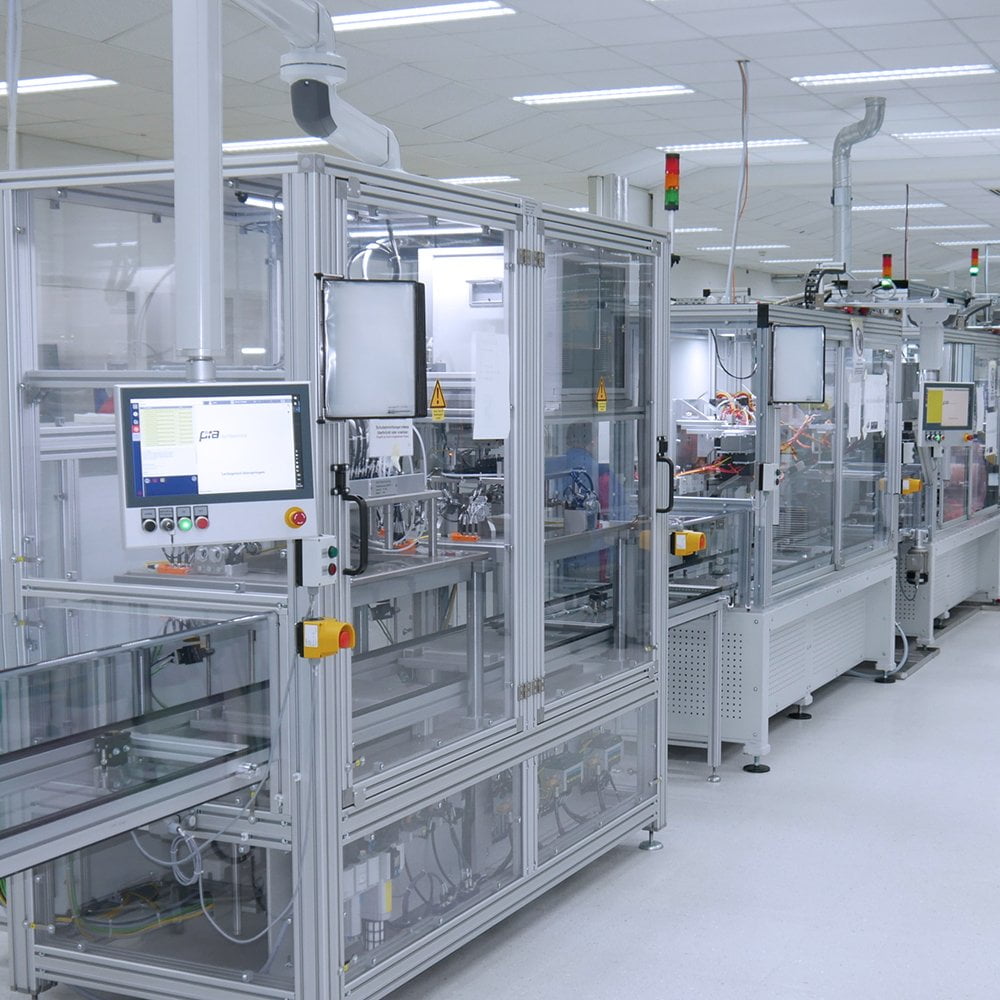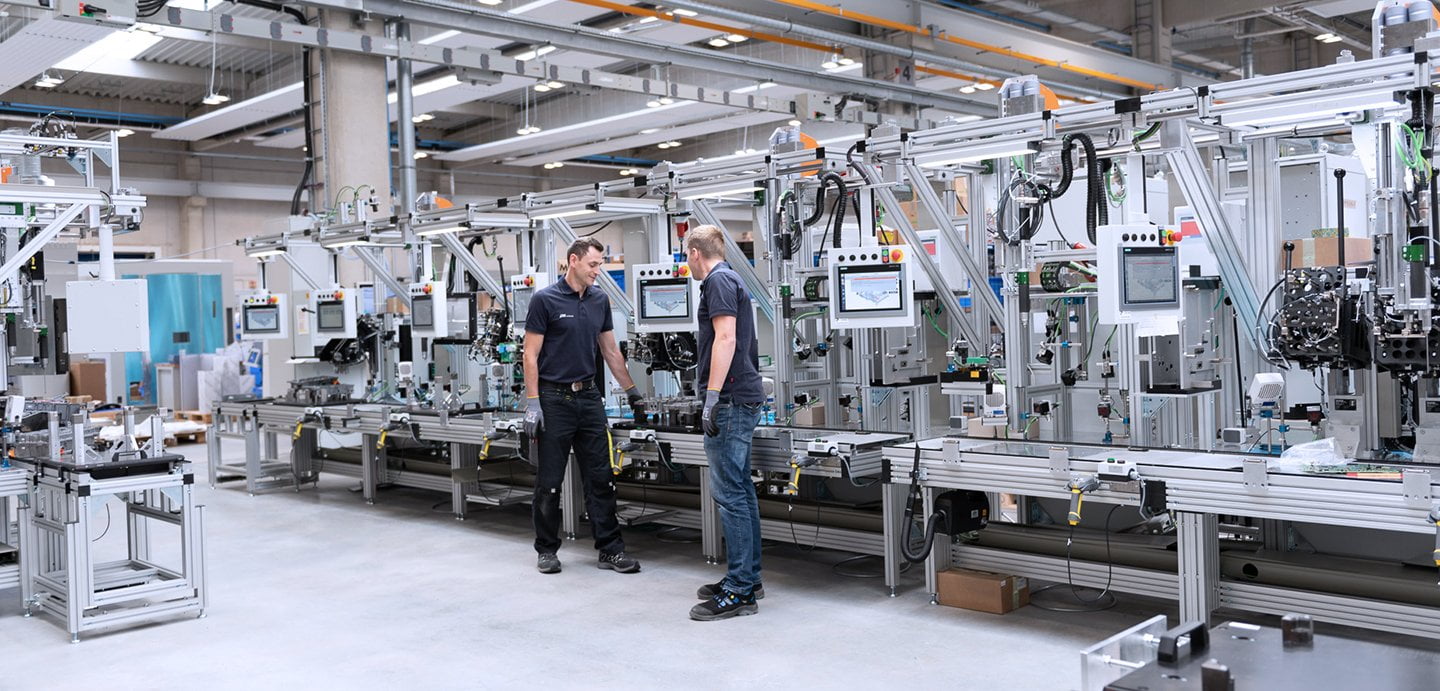
Case Study: eMobility
Testing line for 800V Buck-Converter
The efficient conversion of the energy stored in the battery to the various voltage levels required is essential for the operation of a vehicle with an electric drive. The component known as an inverter performs by converting the battery voltage to, e.g. 400, 48 and 12V. Together with the manufacturer, PIA develops fully automated test systems for such components. The safe handling of high electrical power or voltage and current in the range of up to 1000V/500A and the necessary liquid cooling of the test object makes great demand on the development of the system.
Know-how is available for the following processes
- Leak test of the cooling circuit as well as electronic installation space with air/vacuum
- functional test of the semipermeable membrane required for pressure compensation
- High-voltage strength test of all electrical connections
- Insulation resistance measurement between all electrical connections
- control of the discharge conductance of the housing
- automatic contacting of the different connector geometries and connections
- automatic filling and emptying of the cooling circuit including prior leak test by air
- liquid cooling of the component by means of a controlled temperature system
- function test of the interlock function of the connectors and other subcomponents
- calibration and verification of the current and voltage measurement of the test object
Further processes
- Automatic optical inspection of connectors and surfaces using an adaptive vision system
- Automatic or manual labelling including read control
The connection of the system to a traceability solution is part of the standard, as is typical for automotive production.
